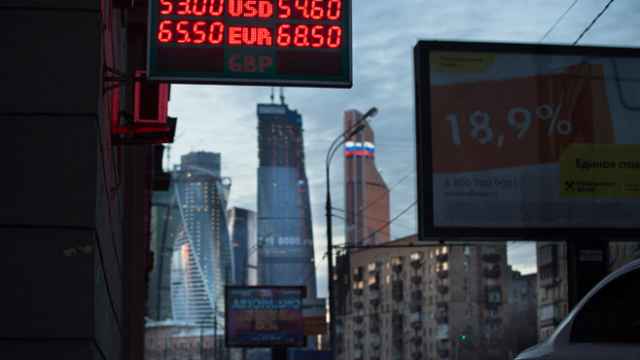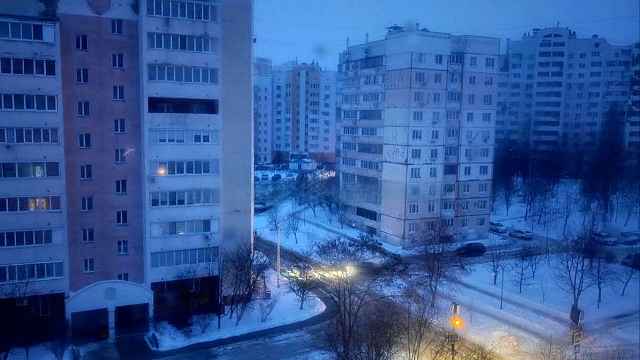LONDON — Kazakhstan is under no pressure to devalue the tenge despite a large drop in value by neighboring Russia's ruble and in global oil prices, the Kazakh Central Bank's deputy governor said on Wednesday.
Asked whether there was pressure to devalue the currency for a second time this year, Dina Galieva told Reuters: "I don't think it exists."
The oil-rich Central Asian nation devalued the tenge by 19 percent in February to ease pressure on its economy. With a near 40 percent drop in the ruble since June badly hurting competitiveness, currency markets are betting on another 10 percent cut in the next three months.
Across the Commonwealth of Independent States — oil-rich Kazakhstan and not-so-rich Tajikistan, Kyrgyzstan, Uzbekistan, Belarus, Armenia and Azerbaijan — memories linger of 2008, when Russia's economic slump triggered recession, housing crashes and mini banking crises.
Galieva said the tenge rate depends on the price of Kazakhstan's exports of oil, metals and grain, but that it could weather falling commodity prices.
Global commodity prices have dropped over the past six months, particularly oil, which has fallen by almost 40 percent since June. Brent crude was trading just below $72 a barrel on Wednesday.
"With oil, the current price is acceptable for us so we don't expect the tenge to go down," she said.
Galieva's comments, made at a Russian banking conference in London, echo Central Bank governor Kairat Kelimbetov's statement last month that there were no plans to devalue the currency in the next three years.
But the ruble's decline is raising pressure on the second-largest of the former Soviet economies. Russia is its largest trade partner, and the falling ruble makes Kazakh exports more expensive in the Russian market. The Central Bank has cut its growth forecasts twice already this year.
Nevertheless, Kazakhstan's gold and forex reserves rose to $28.6 billion in November, Central Bank data showed, and Galieva said she didn't see growth estimates being cut again in the near future.
She also said a new policy to reduce the proportion of bad loans on banks' books would begin to yield results soon, and the number would come down to 10 percent by 2018 or 2019.
Kazakhstan has created a fund to take bad loans from banks and has said it will sack the managers of banks that do not hit targets set to reduce the problems.
A Message from The Moscow Times:
Dear readers,
We are facing unprecedented challenges. Russia's Prosecutor General's Office has designated The Moscow Times as an "undesirable" organization, criminalizing our work and putting our staff at risk of prosecution. This follows our earlier unjust labeling as a "foreign agent."
These actions are direct attempts to silence independent journalism in Russia. The authorities claim our work "discredits the decisions of the Russian leadership." We see things differently: we strive to provide accurate, unbiased reporting on Russia.
We, the journalists of The Moscow Times, refuse to be silenced. But to continue our work, we need your help.
Your support, no matter how small, makes a world of difference. If you can, please support us monthly starting from just $2. It's quick to set up, and every contribution makes a significant impact.
By supporting The Moscow Times, you're defending open, independent journalism in the face of repression. Thank you for standing with us.
Remind me later.





